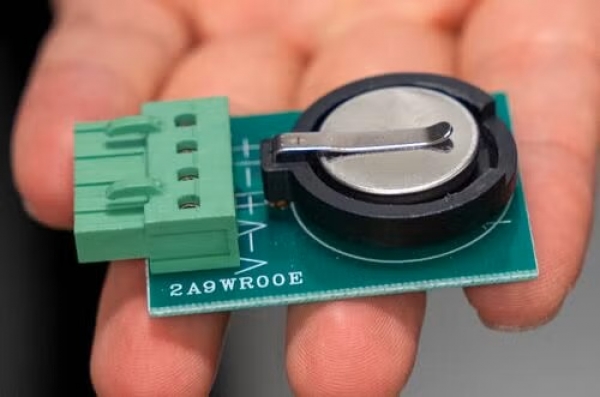University of Waterloo researchers have made a key breakthrough in developing next-generation batteries that are made using magnesium instead of lithium.
When the idea to create batteries using magnesium was first shared in a seminal academic paper in 2000, that novel design didn’t provide enough voltage to compete with lithium-ion batteries, which are predominantly used in the marketplace. Magnesium is much more abundant and less costly than lithium, which would help further sustainable energy storage.
Now, the Waterloo team is one step closer to bringing magnesium batteries to reality, which could be more cost-friendly and sustainable than the lithium-ion versions currently available.
An example of a coin cell, which includes a magnesium-ion full battery with an organic cathode, magnesium metal anode, and the Waterloo-designed electrolyte. (Photo Credit: University of Waterloo)
Sustainability Sci/Tech Top Stories Energy

